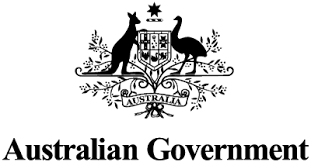Digital Business Plan
The Government is investing almost $800 million to enable businesses to take advantage of digital technologies to grow their businesses and create jobs as part of a JobMaker Digital Business Plan.
The JobMaker Digital Business Plan includes:
- $256.6 million to develop a Digital Identity system
- $419.9 million for the Modernising Business Registers (MBR) program
- $28.5 for the Consumer Data Right to the banking and energy sectors
- $29.2 million to accelerate rollout of 5G
- $22.2 million to expand the Australian Small Business Advisory Service – Digital Solutions program
- $11.4 million for a new regulatory technology commercialisation initiative
- $9.6 million to support fintechs
- $6.9 million for two blockchain pilots
- $5.9 million to boost Australia’s influence on international standards
- $3.6 million towards mandating the adoption of electronic invoicing by 1 July 2022 for all Commonwealth government agencies
- $2.5 million to connect workers and small and medium sized businesses to digital skills training.
The Digital Business Plan is part of the Government’s economic recovery plan to grow the economy and create jobs and supports the Government’s goal for Australia to be a leading digital economy and society by 2030.
Regional Tourism
$250 million of funding for regional tourism has been announced by the Australian Government. The funding will encourage Australians to travel locally for holidays, boosting regional jobs and local economies.
The package includes two funding initiatives:
- $50 million Regional Tourism Recovery initiative to assist businesses in regions heavily reliant on international tourism, allocated based on the economic gross value added by international visitors and tourism employment of the region. Kangaroo Island will receive $3.5m in matched funding. Austrade will commence consultations with eligible regions in October 2020.
- $200 million additional round of the Building Better Regions Fund, $100 million of which will be dedicated to tourism-related infrastructure. BBRF Round 5 will be delivered like its previous four rounds, with Infrastructure Project and Community Investment streams. Grant Opportunity Guidelines will be made available shortly, consistent with the existing BBRF framework, to assist potential applicants.
Government support for the next generation of energy technologies
The Australian Government is supporting the next generation of energy technologies with an extra $1.62 billion for the Australian Renewable Energy Agency (ARENA) to invest, as well as expanding the focus of ARENA and the Clean Energy Finance Corporation (CEFC) to back new technologies that will cut emissions in agriculture, manufacturing, industry and transport.
The Government will provide ARENA with guaranteed baseline funding of $1.43 billion over 10 years. ARENA’s baseline funding will be supplemented in two ways:
- Together with the Clean Energy Regulator, ARENA will be approved to deploy a portion of the $2 billion Climate Solutions Fund; and
- ARENA will also become a clean technology grants hub for future initiatives, with a new $193.4 million provided to deploy targeted programs.
The Boards of ARENA and CEFC will continue to be accountable for individual investment decisions. The Government will introduce new legislation so both agencies can support new and emerging low emissions technologies (including zero and negative emissions technologies). That ensures they will be able to support critical technologies such as soil‑carbon sequestration, carbon capture and storage, production of green-steel, and industrial processes to reduce energy consumption.
Aviation Sector
The Australian Government has announced the Domestic Aviation Network Sector (DANS) program will be extended until 31 January 2021 and the Regional Airline Network Support (RANS) program will be extended until 28 March 2021 through a 2020-21 Budget initiative.
The extension of these programs will maintain major domestic routes so regional and remote communities will continue to receive essential air services.
To date more than $150 million has been invested by the Australian Government across these two programs.
Guidelines and further information for the Regional Airline Network Support program can be accessed at: Regional Airline Network
Further information on the Regional Airline Funding Assistance as part of the $1 billion COVID-19 Relief and Recovery Fund which is supporting the Domestic Aviation Network Sector program is available at: Domestic Aviation Network.
$2 billion to extend a range of COVID-19 health measures
On 18 September 2020, the Prime Minister and the Minister for Health announced that millions of Australians will continue to receive medical care and support in their own homes with more than $2 billion to extend a range of COVID-19 health measures for a further six months, to 31 March 2021.
Medicare-subsidised telehealth and pathology services, GP-led respiratory clinics, home medicines delivery, public and private hospital services will all be extended, as well as further investments in PPE.
Patients will continue to have access to Medicare-subsidised telehealth for general practitioner, nursing, midwifery, allied health and allied mental health services, where and when they need them.
Telehealth is also being extended for essential specialist services, such as consultant physician, geriatrician, and neurosurgery services. Bulk billing will continue to be available and regular billing practices will apply to all of these services.
Medicare-subsidised pathology and testing at the point of care will continue in 86 rural and remote Aboriginal and Torres Strait Islander communities in Western Australia, the Northern Territory, Queensland, South Australia, New South Wales and Victoria. This enables early identification of cases and rapid response if COVID-19 is detected in these highly vulnerable communities.

